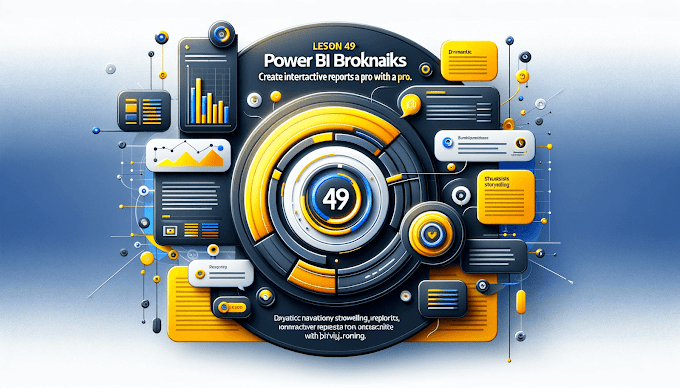Welcome back to virvijay.com
Power BI Row-Level Security (RLS) is a game-changer when it comes to sharing dashboards while restricting data access based on user roles. If you're building reports for sales teams, regional managers, or HR departments, RLS ensures everyone sees only what they’re supposed to see.
Let’s explore how to implement RLS in Power BI, along with best practices, real-world use cases, and common mistakes to avoid.
🔍 What is Row-Level Security (RLS) in Power BI?
Row-Level Security allows you to control which rows of data a user can see in a Power BI report, based on filters defined in the model.
🧠 Example:
You have a sales dashboard for all regions, but you want a regional manager to see only their region’s data? Use RLS.
🔧 How to Set Up Row-Level Security in Power BI Desktop
Step 1: Create Roles
- Open your report in Power BI Desktop.
- Go to Modeling > Manage Roles
- Click Create
- Choose a table and write a DAX filter. Example:
csharp
[Region] = "East"
- Save and close.
Step 2: Test the Roles
- Click View As Roles in the Modeling tab.
- Select a role to preview how the report looks for that user.
🚀 Publish and Assign Users in Power BI Service
- Publish the report to the Power BI Service.
- Go to the Dataset Settings.
- Under Security, assign users or groups to the roles you created.
💡 Note: Users must have Power BI Pro or be in a Premium workspace.
✅ Best Practices for Using RLS
Best Practice Description
Use AD Groups Assign roles to Active Directory security groups, not individuals.
Keep it Simple Avoid overly complex DAX filters.
Document Roles Maintain a list of roles and filters for easy management.
Combine with App Workspaces For better control and UX.
Test with “View as Role” Always preview before sharing.
🧠 Use Case Examples
✅ HR Dashboard:
- Role: [Department] = "HR"
- Only HR sees employee performance data.
✅ Sales Dashboard:
- Role: [ManagerEmail] = USERPRINCIPALNAME()
- Each manager sees only their own team's sales.
✅ Finance Dashboard:
- Role: [Region] IN {"East", "North"}
- Finance team sees multiple regions.
🧱 Limitations of RLS
- Doesn’t apply when Exporting Data unless disabled
- Users can’t modify filters
- RLS only applies at the dataset level, not on imported Excel data in reports
🛡 Combine RLS with Other Security Features
Feature Benefit
Workspace Permissions Limit who can access reports
Sensitivity Labels Classify and protect data
Auditing Monitor usage and security breaches
🤔 Common Mistakes to Avoid
- ❌ Using USERNAME() instead of USERPRINCIPALNAME()
- ❌ Hardcoding email addresses instead of using dynamic DAX
- ❌ Forgetting to test the role in Power BI Desktop
📚 More to Explore
- Power BI CALCULATE Function Explained with Examples
- Power BI App vs Workspace – What’s the Difference?
- Power BI Embedded Analytics – How to Integrate with Apps
🔧 Want help setting up Row-Level Security in your organization?
📧 Reach us at support@virvijay.com

%20Best%20Practices%20%E2%80%93%202025%20Guide'%20illustrating%20secure%20and%20controlled%20data%20acce.jpg)









%20Best%20Practices%20%E2%80%93%202025%20Guide'%20illustrating%20secure%20and%20controlled%20data%20acce.jpg)
'%20featuring%20a%20Power%20BI%20interface%20on%20a.jpg)
